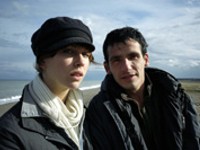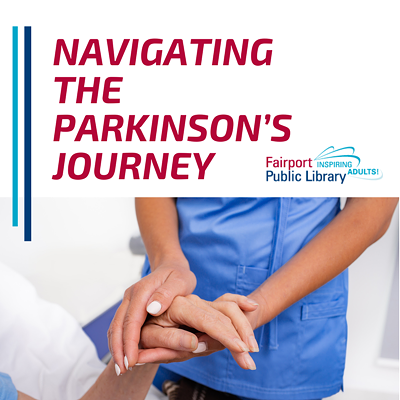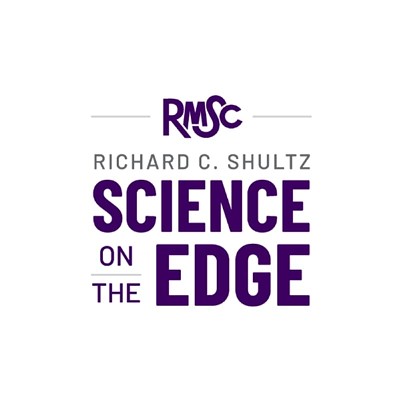[
{
"name": "500x250 Ad",
"insertPoint": "5",
"component": "15667920",
"parentWrapperClass": "",
"requiredCountToDisplay": "1"
}
]
Director and co-writer Mel Gibson has brought us The Passion of The Christ with the stated intention of sharing his faith with the world. This he means to do by simply telling the story of the last days of Christ (told in the Gospels), albeit graphically.
This might lead one to expect a sober, grim piece of work. (Especially knowing he had originally planned to not use subtitles --- the film is in Aramaic and Latin.) And while the film is grim, Gibson brings a Hollywood sensibility to The Passion that will probably help it go over with believers and faithless alike.
When Christ (James Caviezel) is arrested, we are treated to a slow-motion melee as disciples and guards duke it out, rather than a sudden scuffle of rude violence that would hit us in the gut. Jacob's Ladder-style hallucinations permeate the film.
There are even a few time-honored Hollywood traditions tucked in, such as making sure the prostitute is beautiful, and the gag where somebody predicts that a trend familiar to the modern audience will (or won't) catch on. And I'm not sure if setting out to tell the story as written requires a Jewish council elder punching Christ in the face, but then, there are a lot of translations of the Bible.
Which brings us to one of the controversies of the film, which is whether or not it's anti-Semitic. The Gospels are four books in the Bible which all tell the same story, sometimes contradicting one another. They have been more popularly woven into one strand in passion plays and church teachings.
Some have interpreted elements from two of the Gospel books to attribute to the Jewish people the line, "His blood be on us and our children." The film follows this course, but due to pressure, the line is not subtitled, and a bad cut suggests that something else was excised as well. Beyond that, Romans and Jews perform both admirably and abominably alike.
The other issue of note is the violence. It would be disingenuous to ignore that the film is essentially intended as a propaganda piece for the church. Of course it is, and that's fine. Hey, it was financed entirely by Gibson. But it's necessary to view the violence in that light.
A forgotten, amateurish American film called Jesus is often called the most-watched movie of all time, because it has been shown all over the world in scores of languages. It has the most pronounced effect on those who have never seen a movie before --- unfamiliar with the medium of film, they have extraordinary sympathy with the film's protagonist, as though they are witnessing the trials of someone real right before their eyes. They are easily converted.
But we live in a media-saturated world, and this is where the violence in Passion steps in. It ups the ante in the empathy game, and one should be hard-pressed not to grieve for the woes of the character up on the screen. But instead I felt more the force of manipulation.
The production company for this film is Icon films, and their film does present Christ merely as an icon --- an icon of suffering. This is the way you meet him at the start of the film, praying in anguish in the Garden of Olives, and of course things do not improve from there.
The effect of the violence is lessened because suffering seems to be the sole measure of Jesus' being. Flashbacks serve to leaven the film's structure, but do little to bring further dimension to the man. Since he is Jesus Christ, the viewers are presumably expected to bring their sympathies with them to the table.
I felt more riled at the injustice being perpetrated than the violence itself. But even this was undercut by the constant indulgence of showing Christ's persecutors pausing to realize just how wrong they are. This endless satisfying of our sense of righteousness takes the pressure off of the build-up of our anger.
So just how violent is it? Very, and not very, as the violence fails to connect the way it is meant to. The beatings and torture, rendered in near-pornographic detail, are layered in a manner that sometimes approaches gore. The film, well shot, lingers most passionately on the pageantry of his mutilated body.
But Gibson is more artful at visceral impact than emotional impact. I began to feel somewhat bludgeoned as well. Simply setting out to tell the story of the Gospels probably also doesn't need to involve snapping Christ's back to get his hand to fit over the hole in his cross. At that moment of overkill, they lost me.
Famed Beatles director Richard Lester's 1968 masterpiece Petulia is a time capsule of the San Francisco of that era --- but instead of grungy hippie squalor, he and cinematographer Nicolas Roeg have captured the sleek modernity of the time in beautiful, crystalline tableaus (and hippies become dressing for a corporate-seeming charity event, with Janis Joplin singing with her band).
Julie Christie stands in for the disorientation of the disaffected counterculture, George C. Scott for the middle-aged status quo, and together they capture the conflict of the city, which is rendered with an outsider's eye. The presence of Christie, combined with the fragmented editing style Roeg would later adopt himself, make with his photography a fascinating link to Roeg's later work as a director (Don't Look Now, The Man Who Fell to Earth).
See it on the big screen, because it's only otherwise available on VHS, in full-screen format, which cuts the splendor off at the knees. Petulia will play at the George Eastman House's Dryden Theatre, 900 East Avenue, on Thursday, February 26, at 8 p.m. $6. 271-3361
Latest in Movie Reviews
More by Andy Davis
-
Murder and mayhem equals quality --- who knew?
Sep 22, 2004 -

All the sex films are in Toronto
Sep 15, 2004 -

Sifting through the fake, looking for the real
Aug 18, 2004 - More »





